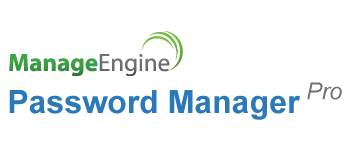Description

ControlCase

Intruder
Comprehensive Overview: ControlCase vs Intruder
ControlCase
a) Primary Functions and Target Markets:
-
Primary Functions: ControlCase is primarily focused on providing IT Governance, Risk, and Compliance (GRC) solutions. Their services include compliance management, risk assessment, security testing, and managed compliance. ControlCase often deals with compliance standards like PCI DSS, GDPR, ISO 27001, and more. Their approach combines consulting, managed services, and software solutions to help organizations maintain compliance and enhance their security posture.
-
Target Markets: The target market for ControlCase includes businesses that need to comply with stringent regulatory standards. These typically include industries such as finance, healthcare, retail, and payment technologies that require high levels of data security and compliance with various regulatory frameworks.
b) Market Share and User Base:
-
ControlCase is considered a notable player within the GRC and compliance management domain, especially recognized in the PCI DSS compliance space. Their market share is significant in sectors that demand rigorous regulatory adherence, but the exact market share details might not be publicly disclosed comprehensively due to the private nature of their operations and market segmentation.
-
The user base primarily consists of medium to large enterprises across various industries that need to ensure compliance with global and national standards, which can range from financial institutions to major retail chains.
c) Key Differentiating Factors:
-
Specialization in Compliance: ControlCase’s specialization in comprehensive compliance management makes them stand out, providing a range of dedicated services and platforms.
-
Global Reach and Expertise: They offer a broad reach with expertise in various global compliance standards, which is particularly advantageous for multinational corporations.
-
Comprehensive Service Model: Offering a combination of software solutions and consultancy services allows organizations to receive more tailored and holistic compliance and risk management support.
Intruder
a) Primary Functions and Target Markets:
-
Primary Functions: Intruder is a cybersecurity company that specializes in vulnerability management solutions. Their services aim to identify weaknesses in IT environments to prevent cyber attacks before they happen. Intruder offers continuous vulnerability scanning, automatic risk assessments, and actionable reporting to strengthen security defenses.
-
Target Markets: Intruder targets businesses of all sizes but focuses heavily on small to medium enterprises (SMEs) that seek affordable and effective vulnerability management solutions. Their tools are particularly popular with startups and companies that may not have extensive in-house security teams.
b) Market Share and User Base:
-
Intruder is known within the cybersecurity community for its simplicity and effectiveness in vulnerability management. While they may not dominate the market compared to larger cybersecurity firms, they have established a solid presence among SMEs. As the demand for cloud-based vulnerability management grows, Intruder’s user base continues to expand.
-
The user base includes a range of businesses from technology startups to more established SMEs looking to enhance their security posture without significant complexity or cost.
c) Key Differentiating Factors:
-
Ease of Use: Intruder is known for its user-friendly interface and easy integration, which attracts companies that may not have deep cybersecurity expertise.
-
Focused Vulnerability Management: Unlike broader cybersecurity suites, Intruder specializes specifically in vulnerability management, providing a focused and streamlined service.
-
Affordability for SMEs: Intruder emphasizes providing cost-effective solutions tailored to the needs and budgets of small to medium-sized businesses, unlike many competitors who target larger enterprises with higher-budget offerings.
Conclusion
Both ControlCase and Intruder serve crucial roles in cybersecurity but with different focuses and market targets. ControlCase is deeply ingrained in the compliance and governance space, while Intruder offers efficient vulnerability management solutions. Their market share and user bases reflect their specialized markets, and their differentiating factors highlight their tailored approaches to security and compliance needs.
Contact Info

Year founded :
2004
+1 703-483-6383
Not Available
United States
Not Available

Year founded :
2015
Not Available
Not Available
United Kingdom
Not Available
Feature Similarity Breakdown: ControlCase, Intruder
As of my last update, ControlCase and Intruder are both cybersecurity platforms, but they serve slightly different purposes within the cybersecurity ecosystem. Here's a general breakdown of feature similarities and distinctions:
a) Core Features in Common:
-
Vulnerability Management: Both ControlCase and Intruder offer vulnerability scanning and management solutions to identify security weaknesses in systems and networks.
-
Risk Assessment: These platforms provide tools for assessing the risk posed by identified vulnerabilities, helping organizations prioritize their response to potential threats.
-
Compliance Support: Both platforms assist organizations in meeting various compliance requirements, albeit to different extents and specifications (e.g., PCI DSS, GDPR).
-
Reporting and Analytics: Each service generates detailed reports that summarize security findings and offer insights that are crucial for IT teams to understand their security posture.
b) User Interface Comparison:
-
ControlCase: Often oriented towards compliance and audit management, ControlCase's user interface is typically designed to support workflow for compliance tracking and reporting. The interface can offer a dashboard that simplifies complex compliance data, allowing users to easily track compliance status, tasks, and audit trails.
-
Intruder: Known for its simplicity and user-friendly approach, Intruder's interface is generally clean and straightforward, focusing on ease of use for vulnerability scanning and management. It tends to emphasize straightforward navigation and quick access to scanning results and actionable insights, making it accessible even to those with less technical expertise.
c) Unique Features:
-
ControlCase:
- Comprehensive Compliance Management: ControlCase is particularly strong in compliance management solutions, covering multiple standards beyond just vulnerability scanning. It provides extensive tools for governance, risk management, and compliance (GRC).
- Audit Services: Offers specialized services for conducting audits, necessary for certain compliance certifications.
-
Intruder:
- Continuous Vulnerability Monitoring: Intruder offers features like 24/7 scanning, providing continuous monitoring and immediate alerts on vulnerabilities as they arise.
- Ease of Integration: It's often praised for its ability to integrate seamlessly with other tools in an IT environment, enhancing collaborative vulnerability management workflows.
- Cloud-focused Security: Intruder has a strong focus on cloud infrastructure, providing tailored features for businesses operating in cloud environments.
When selecting between these platforms, decision-makers should assess their specific needs—whether a focus on broad compliance management (ControlCase) or specialized vulnerability scanning and monitoring (Intruder) better suits their organizational requirements.
Features

Compliance Management
Security Services
Risk Assessment
Vendor Management

Compliance Support
Proactive Security Monitoring
Simplified Security Management
Best Fit Use Cases: ControlCase, Intruder
ControlCase and Intruder are both players in the cybersecurity and compliance landscape, but they cater to different needs and types of businesses. Here's a breakdown of their best fit use cases:
ControlCase
a) Best Fit Use Cases for ControlCase
ControlCase specializes in compliance management and cybersecurity solutions. Its services are particularly beneficial for:
- Financial Institutions: Companies needing to adhere to stringent regulatory requirements such as PCI DSS (Payment Card Industry Data Security Standard), GDPR (General Data Protection Regulation), and other financial service regulations.
- Healthcare Organizations: Businesses needing to comply with HIPAA (Health Insurance Portability and Accountability Act) and other healthcare-related regulations for protecting patient data.
- Retail and E-commerce: Firms that process large volumes of credit card transactions and need to ensure PCI DSS compliance.
- Cloud Service Providers: Companies offering cloud-based services that must demonstrate compliance with industry standards to their clients.
ControlCase's comprehensive approach to compliance makes it ideal for businesses that require ongoing audits, assessments, and certifications across multiple regulatory frameworks.
d) Industry and Company Size
ControlCase caters to medium to large enterprises that require robust compliance solutions due to the complexity and volume of regulations they must adhere to. It also serves sectors like finance, healthcare, and retail, where compliance is not optional but a critical business requirement.
Intruder
b) Preferred Scenarios for Intruder
Intruder is more focused on security and vulnerability management. It's a better fit for:
- Small to Medium-Sized Businesses (SMBs): Companies looking for cost-effective and automated vulnerability scanning solutions.
- Startups: Especially tech startups that need to integrate security testing into their development lifecycle without overburdening their resources.
- Digital Agencies and IT Service Providers: Firms that manage multiple client environments and need to ensure security across all systems.
- Development Teams: Teams following DevSecOps methodologies who require continuous, automated security assessments integrated into their CI/CD pipelines.
Intruder’s strength lies in its ease of use, automation, and ability to quickly identify vulnerabilities with minimal manual intervention, making it attractive to businesses without large dedicated security teams.
d) Industry and Company Size
Intruder suits smaller businesses across various industries that need reliable vulnerability scanning without the overhead of internal security teams. It is scalable, making it possible for growing companies to start small and expand usage as their security requirements evolve.
Summary
- ControlCase is optimal for larger enterprises needing comprehensive compliance management across industries that are heavily regulated like finance, healthcare, and retail.
- Intruder serves smaller companies or teams that seek efficient vulnerability management without extensive resource allocation, making it ideal for SMBs, startups, and IT service providers in a wide range of industries.
Each tool caters to specific needs based on the complexity and scale of the organization's security and compliance demands.
Pricing

Pricing Not Available

Pricing Not Available
Metrics History
Metrics History
Comparing undefined across companies
Conclusion & Final Verdict: ControlCase vs Intruder
To provide a conclusion and final verdict for evaluating ControlCase and Intruder, we must consider various factors including features, usability, pricing, support, and specific needs of potential users. Here is a comprehensive analysis:
a) Best Overall Value
Intruder tends to offer the best overall value for organizations primarily seeking a robust vulnerability management and network security testing solution. Its automated scanning capabilities, coupled with a streamlined user interface and comprehensive reporting, make it particularly appealing for businesses looking for efficiency and accuracy in identifying security vulnerabilities.
b) Pros and Cons
ControlCase:
-
Pros:
- Strong focus on compliance management and aligning IT security policies with leading standards such as PCI DSS, ISO 27001, and HIPAA.
- Offers a wide range of managed services that can be integrated into broader IT security strategies.
- Comprehensive risk management features.
-
Cons:
- Can be more complex to set up and use due to its extensive compliance and security toolset.
- May involve higher costs, especially for smaller organizations not fully utilizing the breadth of offered services.
- Some users might find the interface less intuitive compared to more specialized software.
Intruder:
-
Pros:
- Excellent for vulnerability scanning with automated, regular scans that provide timely insights into potential security threats.
- User-friendly interface that's easy for IT teams to navigate.
- Typically more cost-effective for small to medium-sized businesses focused on vulnerability management without needing extensive compliance tracking.
-
Cons:
- Less focused on compliance, which could be a downside for businesses needing in-depth compliance management.
- Limited in terms of managed services or broader IT security strategies outside vulnerability scanning.
c) Specific Recommendations
For users trying to decide between ControlCase and Intruder, consider the following recommendations:
-
Determine Your Primary Need:
- If your organization needs comprehensive compliance management and a wide range of managed security services, ControlCase might be more suitable.
- If the focus is primarily on network security and efficient vulnerability management, Intruder would likely be a better fit.
-
Evaluate Usability and Resources:
- Consider the size and expertise of your IT team. If they prefer straightforward, easy-to-navigate tools, Intruder is advantageous.
- For teams with the capacity to manage more complex setups and options, ControlCase may offer more long-term benefits with its extensive functionality.
-
Budget Consideration:
- Analyze your budget constraints. Intruder generally provides a more affordable solution for tight budgets with strong vulnerability scanning needs.
- ControlCase might justify its cost for businesses that can leverage its full suite of compliance tools and services.
Ultimately, it comes down to aligning the choice with your organization’s specific security priorities and capabilities.
Add to compare




